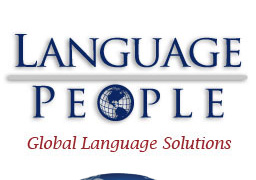Q. What is the difference between interpretation and translation?
A. Interpretation is the spoken word. Translation is the written word.
Q. In what languages do you provide interpretation services?
A. Our top three requested interpretation languages are Spanish, American Sign Language, and Chinese. Other highly requested languages for interpretation opportunities are Bosnian/Croatian/Serbian (BCS), Dari, Farsi, Hindi, Japanese, Khmer (Cambodian), Korean, Lao, Pashto, Punjabi, Russian, Tagalog, Hmong and Vietnamese. We work in 150 languages and many world dialects, and are looking for interpreters in all languages throughout the United States.
Q. What qualifications do I need to possess to become an interpreter?
A. Verbal fluency in English and one or more other languages and demonstration of ability to convey communication consecutively between two parties without loss of meaning.
Q. How do I set my fees?
A. We have set fees that our clients pay us, and which determine what we can pay you. Upon accepting any interpretation assignment, it is important to make sure you and the dispatcher have agreed upon a fair rate and that it is confirmed prior to the service date.
Q. What is the role of a Community Interpreter?
A. The primary role of the interpreter is to serve as a unbiased conduit of communication between a client and a service provider. Interpreters may also play a role as a cultural clarifier, but interpreters are not advocates. We do not contract or hire interpreters to perform services such as advocating on a client’s behalf, providing legal advice, etc., as these roles are beyond the scope of work of a Community Interpreter.
Q. What is the background of a Language People Community Interpreter?
A. All of our interpreters have been assessed to ensure their abilities in both English and the non-English languages, as well as for technical interpretation skills, knowledge of the terms and concepts of law and social services, and demonstrated understanding of the ethics and practices of interpretation.
Q. What is a "certified interpreter"?
A. "Certified interpreter" has many meanings. Please note, outside the courts and legal system in the United States, there is no nationally recognized standard or certification for interpreting for all situations and all languages. There are many state level certifications, and industry specific certifications, such as health care. A Language 411 Certified Community Interpreter is an industry specific certification.
Q. What is a state certified interpreter?
A. In the state of California there are three types of Certified Interpreters who work in the legal system: Administrative Hearing, Medical, and Court. There is also the Registered Interpreter exam for "non-designated" languages.
Q. What is a California "Court Certified" Interpreter?
A. One of the most widely recognized standards for interpretation is the “court certified” standard. The Judicial Council of California, an administrative arm of the courts, contracts with CPS to certify interpreters for the federal and state court system. A certified interpreter in California has passed a language specific exam, met educational requirements, taken a required ethics course, and registered with the Judicial Council. CPS has language specific exams in Court Interpreter certification only for the following designated languages: English and Arabic, Eastern Armenian, Western Armenian, Cantonese, Japanese, Korean, Mandarin, Portuguese, Russian, Spanish, Tagalog, and Vietnamese.
Q. What is a California "Court Registered" Interpreter?
A. The Judicial Council of California, an administrative arm of the courts, contracts with CPS Human Resources Services to certify interpreters for the federal and state court system.
Q. What is the Administrative Hearing and Medical Interpreter Certification?
A. An Administrative Hearing Interpreter interprets during agency hearings before Administrative Law Judges (Worker's Compensation Appeals Board, Labor Relations Board, etc.). A medical Interpreter provides interpreting services at medical exams conducted for the purpose of determining compensation or monetary award in a civil case. There are five certifiable languages: Cantonese, Japanese, Korean, Spanish, and Vietnamese. All other languages are considered "Non-designated."
Q. What is the Consortium for State Court Interpreter Certification?
A. The Consortium was officially founded in July, 1995 by Minnesota, New Jersey, Oregon, and Washington. There are currently 29 member states. They administer exams in Arabic, Cantonese, Haitian Creole, Hmong, Korean, Laotian, Mandarin, Russian, Spanish, and Vietnamese. |





